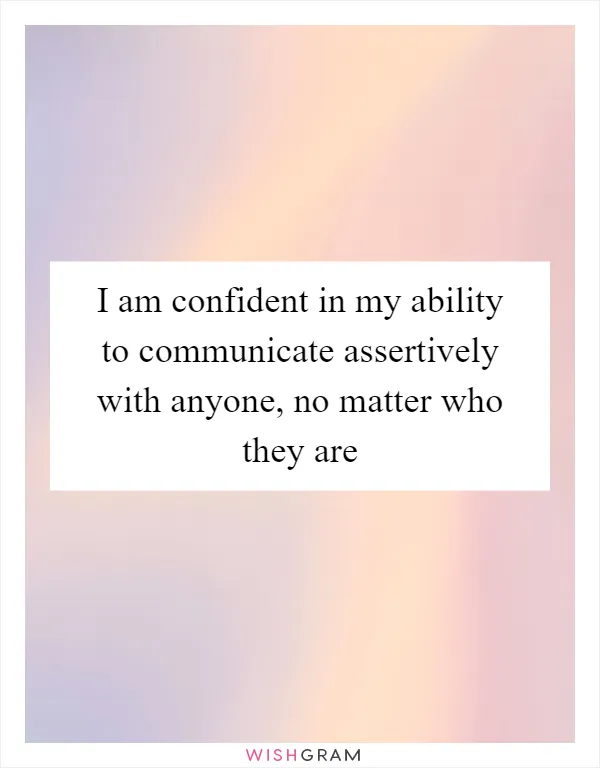I am confident in my ability to communicate assertively with anyone, no matter who they are
Assertive communication is a skill that can be learned and mastered with practice. It involves expressing your thoughts, feelings, and needs in a clear and direct manner while respecting the rights of others. It is a valuable tool in both personal and professional relationships, as it can help you to establish boundaries, resolve conflicts, and build trust.
If you struggle with assertive communication, it can be helpful to repeat the affirmation "I am confident in my ability to communicate assertively with anyone, no matter who they are". This affirmation can help you to cultivate a mindset of confidence and self-assurance, which can make it easier to speak up and assert yourself in any situation.
When communicating assertively, it is important to use "I" statements rather than "you" statements. For example, instead of saying "You always interrupt me when I'm speaking" you could say "I feel frustrated when I am interrupted while speaking". This approach is less accusatory and more focused on your own feelings and needs.
Another key aspect of assertive communication is active listening. This means paying attention to what the other person is saying, asking clarifying questions, and reflecting back what you have heard to ensure that you have understood correctly. Active listening can help to build rapport and understanding, which can make it easier to communicate assertively and resolve conflicts.
It is also important to be aware of your body language when communicating assertively. Standing up straight, making eye contact, and speaking clearly and confidently can all help to convey your message effectively. Avoid crossing your arms or legs, as this can signal defensiveness or closed-mindedness.
